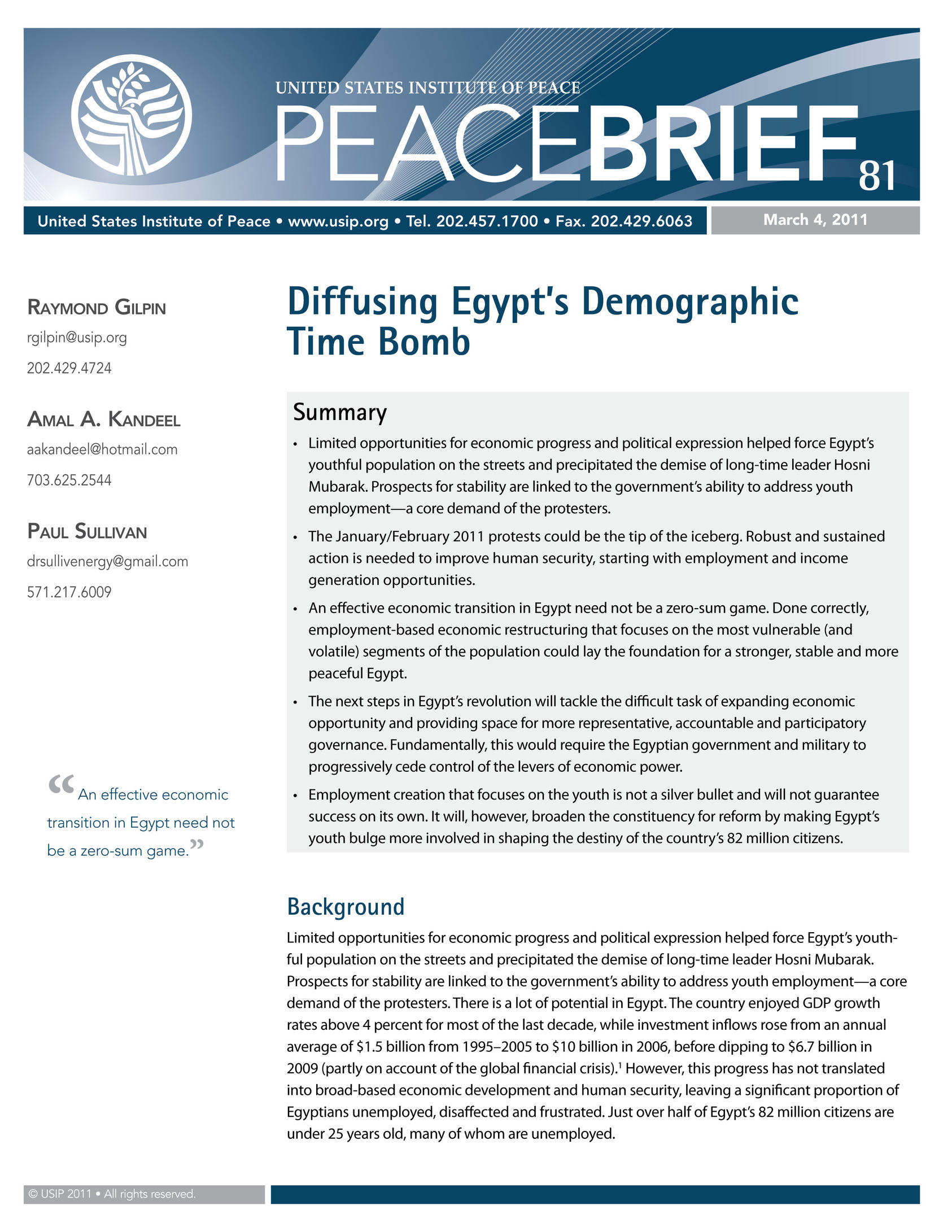Defusing Egypt’s Demographic Time Bomb
In the wake of the January/February upheavals, USIP convened a working group to examine the multifaceted challenges facing Egypt’s new government and its people. This Peace Brief discusses the groups analysis of the situation.

Summary
- Limited opportunities for economic progress and political expression helped force Egypt’s youthful population on the streets and precipitated the demise of long-time leader Hosni Mubarak. Prospects for stability are linked to the government’s ability to address youth employment—a core demand of the protesters.
- The January/February 2011 protests could be the tip of the iceberg. Robust and sustained action is needed to improve human security, starting with employment and income generation opportunities.
- An effective economic transition in Egypt need not be a zero-sum game. Done correctly, employment-based economic restructuring that focuses on the most vulnerable (and volatile) segments of the population could lay the foundation for a stronger, stable and more peaceful Egypt.
- The next steps in Egypt’s revolution will tackle the difficult task of expanding economic opportunity and providing space for more representative, accountable and participatory governance. Fundamentally, this would require the Egyptian government and military to progressively cede control of the levers of economic power.
- Employment creation that focuses on the youth is not a silver bullet and will not guarantee success on its own. It will, however, broaden the constituency for reform by making Egypt’s youth bulge more involved in shaping the destiny of the country’s 82 million citizens.
About this Brief
In the wake of the January/February upheavals, USIP convened a working group to examine the multifaceted challenges facing Egypt’s new government and its people. USIP’s Raymond Gilpin partnered with economists Paul Sullivan and Amal A. Kandeel to analyze the situation. Raymond Gilpin, a development economist with twenty-five years of experience in developing and transitional economies, directs USIP’s Sustainable Economies Center for Innovation.
Amal A. Kandeel is an adjunct professor at Georgetown University and an independent economic development consultant. She lived in Egypt for twenty-four years and provides advisory services to a broad range of clients in the United States, Egypt, United Kingdom and Jordan.
Paul Sullivan is a professor of Economics at the National Defense University and an adjunct professor at Georgetown University. He has been involved with Egypt for over seventeen years and lived in Egypt from 1993–99 while teaching at the American University in Cairo.



